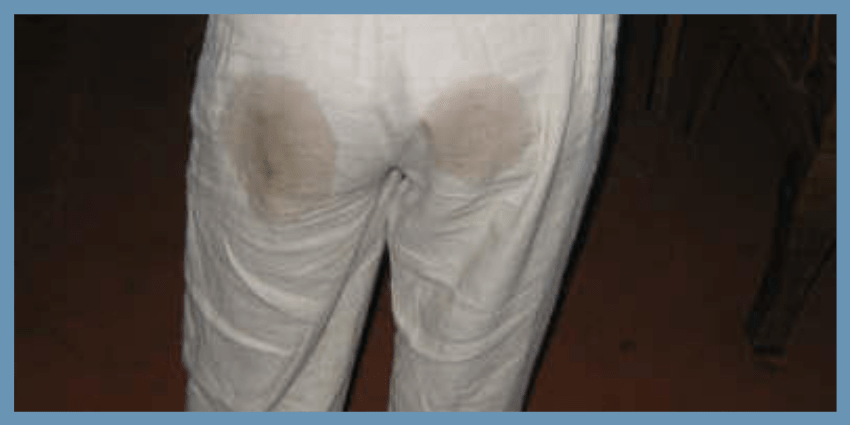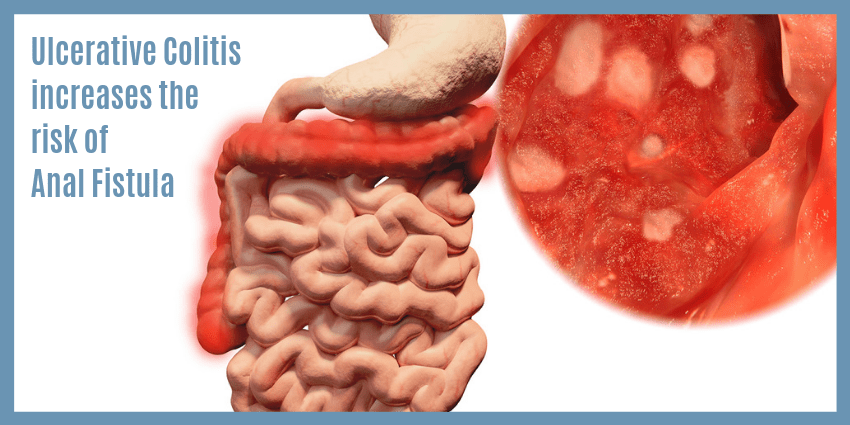What is an Anal Fistula?
An Anal Fistula or otherwise known as Fistula is an abnormal communication or tunnel that connects the rectum and the skin near the anus. When this abnormal communication gets established, motion can pass through such communication. If left untreated it often results in infection and fever. Anal Fistula is also referred to as Fistula-in-ano.
What are the Causes for Anal Fistula?
The most common cause for an anal fistula is constipation. Constipation causes the many glands present in your anus to get blocked or clogged. This causes the formation of a large pocket of infective tissue consisting of bacteria to build up and accumulated fluid. This large pocket of infective tissue is called abscess or perianal abscess. If left untreated, this abscess can grow and make a pathway outside and make an external communication or opening near the anal region. This abnormal communicative pathway is known as an anal fistula.
Other causes of Anal Fistula are
- Inflammatory Bowel Disease
- Old age
- Tuberculosis
- Very rarely malignancy can also be a reason
Common Symptoms of Anal Fistula
Symptoms before the establishment of External Communication
- Swelling and redness can be seen around the anal region.
- Communication first begins internally which manifests pain.
- Patients experience intolerable pain while defecating and sometimes even while passing urine.
Symptoms after the establishment of External Communication
- The communication gradually connects externally with an opening in the skin.
- Pain and the swelling disappear when the external opening happens initially.
- Mucous and pus discharge can be seen from the external opening of the anal fistula.
- Constant wetness in the underpants as reported by the patients.
- When the mucous and pus discharge stops then internally pus and other debris are getting collected.
- Pain manifests and then the external opening opens up again draining once again the accumulated mucous and pus. This becomes a chronic vicious cycle.
- High-grade fever may also be experienced as a result of the infection.
- Bloody stools can be observed as a result of pus and blood discharge while defecating.
- Constant pricking pain that can worsen while sitting.
- Bowel incontinence or difficulty in controlling bowel movements can be caused if the anal fistula goes on to damage the anal sphincter muscles.
Who are at the risk of getting Anal Fistula?
- People with untreated anal abscess are prone to get an Anal fistula. Some studies say that about 30-50 % of the people with untreated anal abscess later present with Anal Fistulas.
- Inflammatory diseases such as Crohn’s disease and Ulcerative Colitis can also cause Anal Fistulas.
- In some cases, the anal fistulas can reoccur even after surgery.
- Anorectal Cancer can rarely present with anal fistulas.
How are Anal Fistulas Diagnosed?
- As a part of the primary investigation, the colorectal surgeon conducts a physical examination in the anal region to identify the characteristic nodules present for anal fistula.
- A colonoscopy may also be done by the surgeon to get a better understanding of the severity of the condition.
- MRI and ultrasound are also used as a diagnostic tool to identify any internal conditions, and the presence or absence of abscess. More importantly, MRI reports help in mapping the track of the fistula and also tell if the tracts are simple or complex in nature. This provides the Fistula surgeon with precise information on how to close the anal fistula tracts so that they do not recur. MRI also rules out any other internal conditions.
What are the non-surgical treatments for Anal Fistulas?
During the initial stages of anal fistula, the following can be done.
- Medications like antibiotics, stool softeners etc are administered by the surgeon when pain is manifesting
- Avoiding constipation by changing lifestyle and diet habits.
What are the Surgical treatments for Anal Fistulas?
Surgery is the best and only option for Anal Fistulas. There are several surgical treatment options available for anal fistula and the specific surgery type used usually depends on the position of the anal fistula. The surgical type for anal fistula is determined by the surgeon.
Some of the common surgical treatments for anal fistula are
- Fistulotomy: This surgery involves cutting along the fistula to its full length.
- Seton technique: This involves placing a piece of surgical thread in the anal fistula and leaving it there for several weeks, which allows the anal fistula to drain the abscess and heal.
- Advancement Flap: This Procedure involves cutting out the anal fistula and covering the opening of the fistula with a flap of tissue taken from the rectum.
- Bioprosthetic plug: This method is done by placing cone-shaped bioprosthetic plug made from animal tissue in the internal opening of the fistula.
Irrespective of the fistula surgery type, usually the fistula track is sent for a biopsy. In India, most fistula biopsy might point to TB or Tuberculosis. If that is the case, the patient is also recommended treatment for TB.


